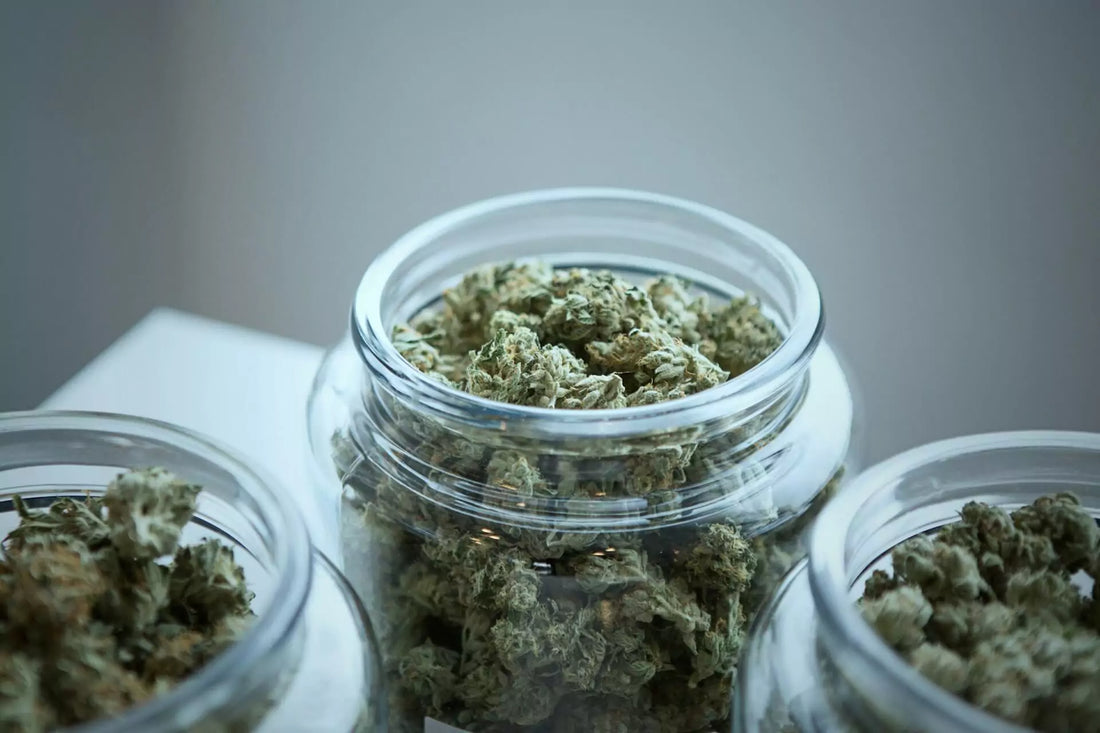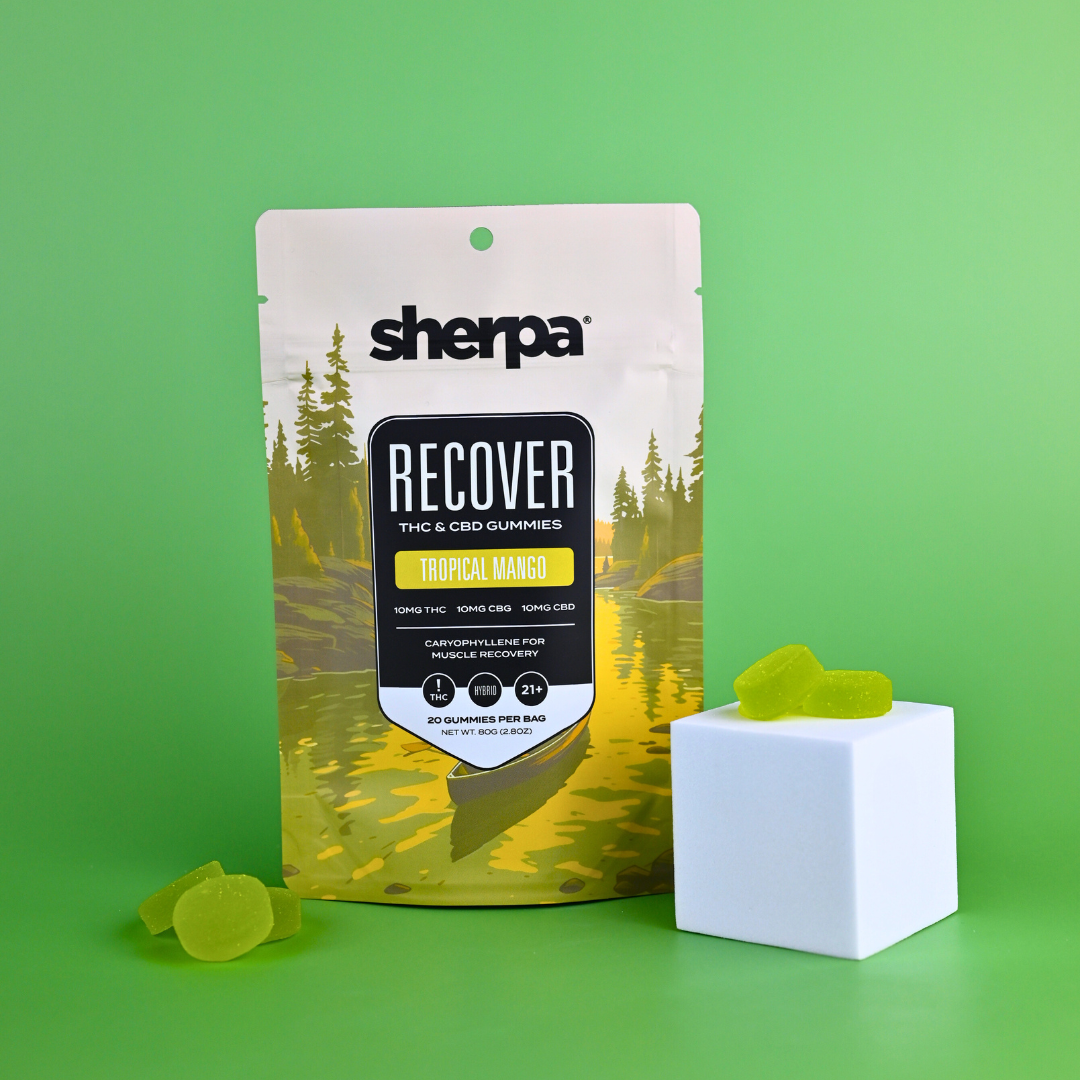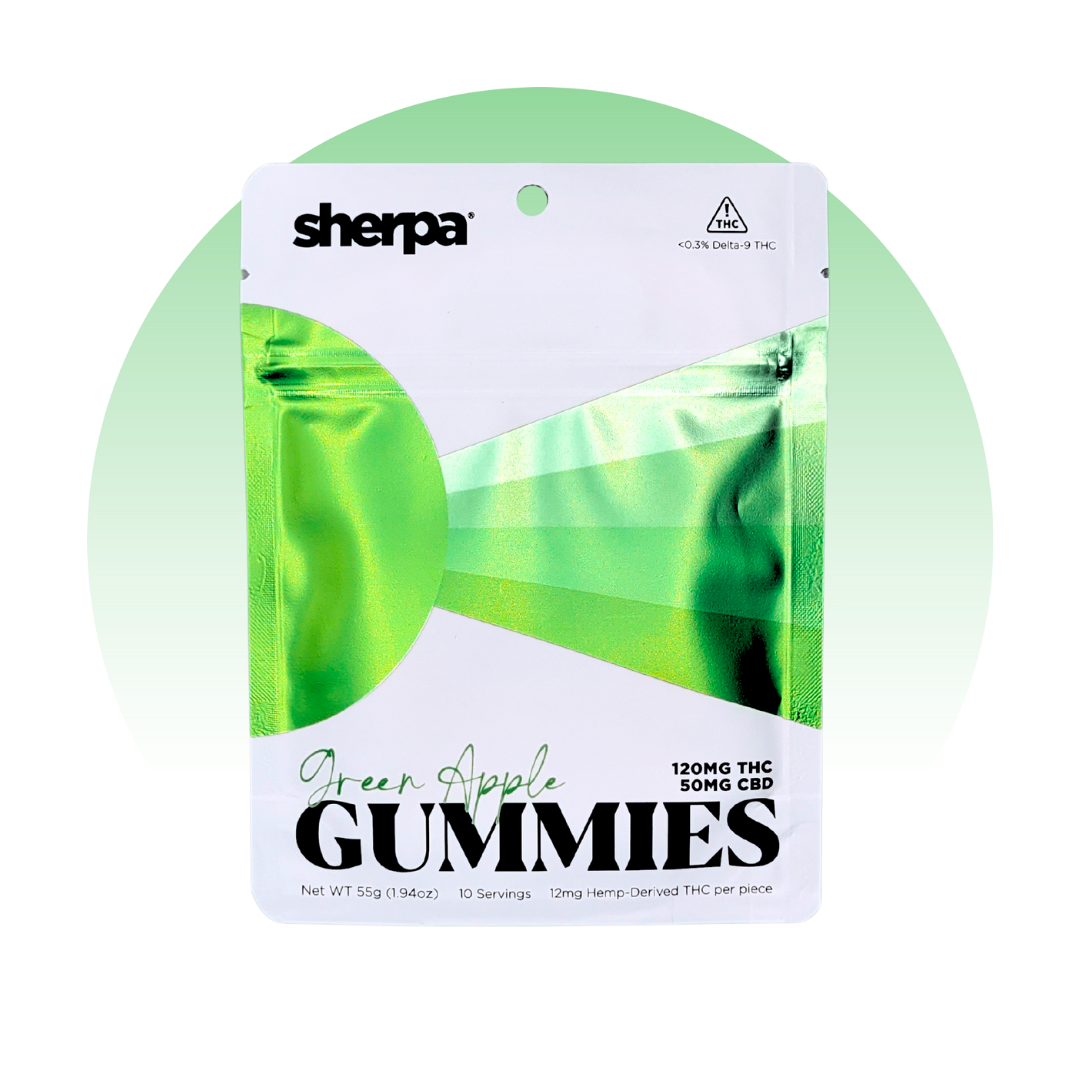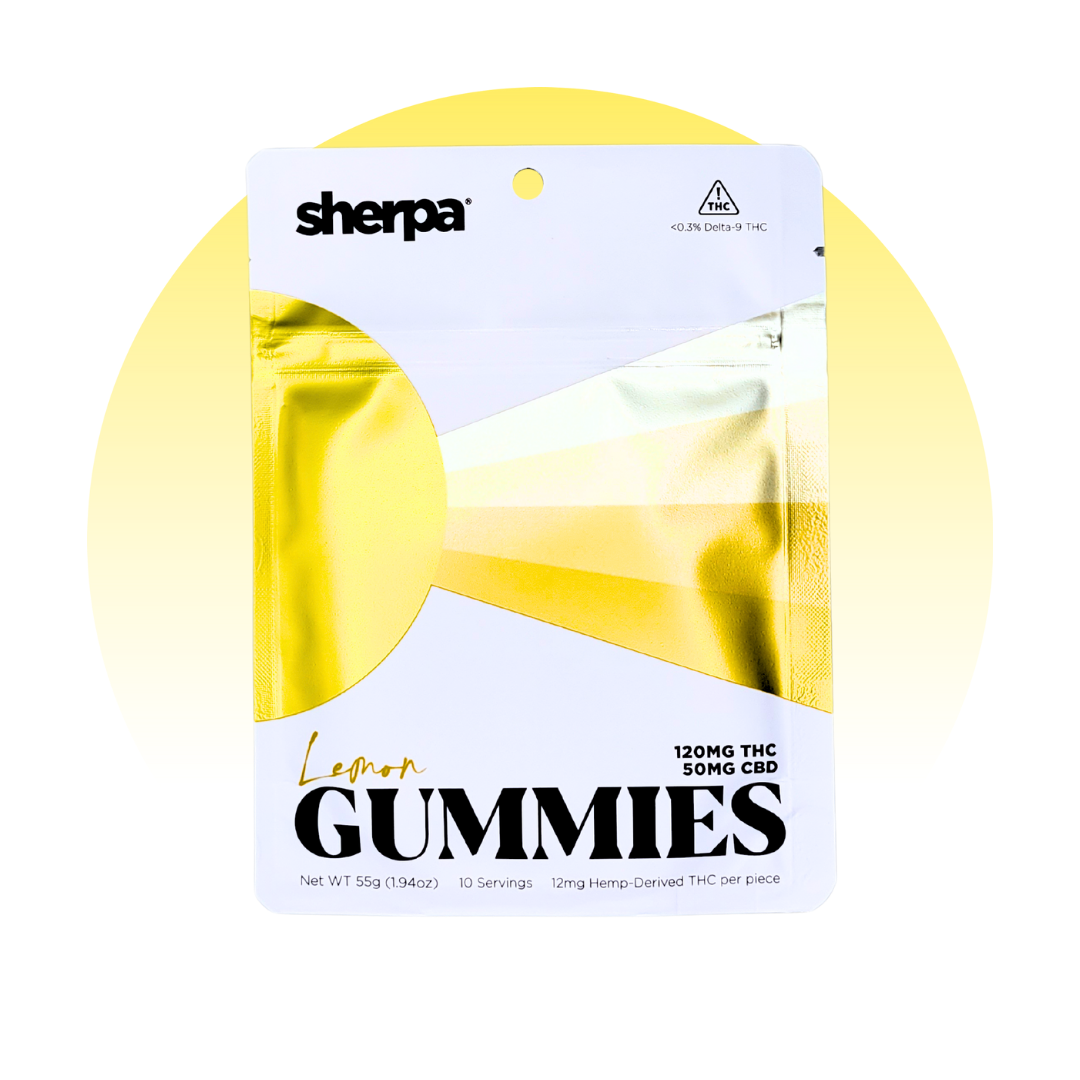
Our Blog
What is CBN?
What is CBN?
If you're interested in fostering a more intimate relationship with cannabis, you're going to have to familiarize yourself with the compounds contained within the plant. Cannabinoids, flavonoids, terpenes — they can all play important roles in your health and wellbeing.
That said, there's a ton of information out there, and it's tough to keep everything straight. CBG, THC, THCP, THCA — what are these compounds, and what do they do? Should you be taking them? Are they even legal?
Don't worry; we're you're cannabis guides and we're here to answer all the questions you have about this hugely impactful, often controversial, but always super interesting plant. Today, we're going to be taking a close look at one cannabinoid in particular, CBN, to understand exactly what it is and what it can do for you.
What Is CBN?
If you've been exploring the world of cannabis, you might have stumbled across CBN, or cannabinol, and wondered what all the fuss is about.
Discovered way back in the 19th century, CBN is one of the many cannabinoids found in cannabis plants. Unlike its more famous cousins THC and CBD, CBN is often overlooked in the grand scheme of things. There aren't a whole lot of signs on the highway for head shops and wellness stores selling CBN products — at least not right now. That said, this clever little cannabinoid is gaining traction for its unique properties and potential benefits.
So, what exactly is CBN? It's a non-psychoactive cannabinoid that primarily forms when THC oxidizes. In other words, when cannabis is aged or exposed to air and light, THC breaks down into CBN. This means that if you let your cannabis products sit around without sealing them up, they tend to have higher concentrations of CBN, which can influence the overall effects you're going to experience.
Is that a bad thing?
No, not really. Despite its humble beginnings — no one really knew what to do with it at first — CBN is now being researched for its potential therapeutic applications. While more studies are needed to fully understand its effects, early findings suggest that CBN could play a role in promoting sleep, reducing inflammation, and alleviating pain. With growing interest in cannabis and its various compounds, CBN is starting to step into the spotlight, and we've gotta tell you — we're here for it.
What Are the Differences Between CBN and Other Cannabinoids?
So let's start with the big one. CBN does have some properties that affect your mind and your mood, but it's nowhere near as intense as THC, the primary psychoactive compound in the cannabis plant. More on that in just a second.
A lot of folks compare CBN to CBD, another cannabinoid that occurs naturally in the cannabis plant that's well known for its non-psychoactive but ultimately beneficial properties. While both CBN and CBD share some similar effects, they each have distinct interactions with the body's endocannabinoid system which will make you experience them differently.
In terms of benefits, CBN is often linked to sleep enhancement, making it a popular choice for individuals seeking a natural remedy for insomnia. While CBD may help reduce anxiety and promote relaxation, CBN is gaining recognition for its sedative-like effects. This distinction makes CBN particularly appealing to those who struggle with sleep-related issues.
Additionally, CBN may have anti-inflammatory and analgesic properties, which puts it in a similar ballpark with cannabinoids like CBD and THC, but it operates through different mechanisms. As research continues, we're excited to learn more about how CBN stacks up against its cannabinoid counterparts.
Now we're sure you have one question in your mind, so let's address it head-on.
Will CBN Get You High?
This is a question we hear all the time whenever we start talking about various cannabinoids. Will it get you high? Well, the short answer is no. Unlike THC, CBN is considered to be non-psychoactive, meaning it won't produce the euphoric "high" typically associated with marijuana use.
That doesn't mean you won't feel it though. While it won't provide that intense psychoactive experience that THC does, CBN is known for its calming and sedative properties. Users often report feeling relaxed or sleepy, making it a great choice for people seeking relief from insomnia or the Sunday Scaries without any sort of intoxication.
That said, it's important to note that individual responses to cannabinoids can vary. While CBN itself won't get you high, some users may feel slightly "altered" in a way that could be mistaken for a mild effect, especially in higher doses. Trust us, even if you eat a fistful of it, it's not going to be anywhere close to what you would feel if you have the same dose of THC. So go ahead, recommend it to your mom.
Effects of CBN
Curious about what CBN feels like? Let's break it down.
Users typically report a more mellow and calming experience compared to the euphoric high produced by THC. Many find CBN to be a great companion for winding down at the end of a long day or preparing for a restful night's sleep. If THC is a medical-grade sleeping pill, CBN is a nice cup of chamomile tea.
CBN's sedative effects are probably its most noteworthy characteristic. While everyone's body reacts differently to cannabinoids, CBN is thought to enhance sleep quality and help people fall asleep faster. If you're looking to drift off without feeling overly groggy the next day, CBN might be worth a try.
That said, CBN isn't just about sleep. Anecdotal evidence suggests that it can also help with pain relief and inflammation, similar to CBD. A lot of users have reported feeling less discomfort and experiencing a reduction in inflammation after taking it, and while you need to take these reports with a grain of salt, it does seem like a pretty attractive option for people managing chronic pain conditions. We'll talk more about this in the benefits section, but just make sure you consult with your doctor before you introduce any new substance to your routine, especially if you have underlying health conditions or you're currently taking medication. While cannabis and its compounds are generally regarded as safe, you don't want to create any unforeseen side effects.
In that vein, one thing to keep in mind is that because CBN is less researched than THC and CBD, we still have a lot to learn about its full spectrum of effects. While preliminary studies suggest a promising future, always remember to listen to your body and start with low doses to see how CBN works for you. As with any cannabinoid, individual experiences can vary widely, so it's pretty important to approach CBN — or any substance new to you — with a bit of caution.
And speaking of precautions, let's now shift gears a little and discuss the legality of CBN.
What Is the Legality of CBN?
Navigating the legal landscape of cannabis can feel like trying to solve a Rubik's Cube — it's super complicated, and it always seems to be changing. When it comes to CBN, the situation is somewhat more clear, but there are still some important nuances to consider.
In the United States, CBN is usually derived from hemp, which means it falls under the legal framework established by the 2018 Farm Bill. This legislation legalized hemp and its derivatives, provided they contain less than 0.3% THC by dry weight. Since CBN typically fits this criterion, it is generally considered legal at the federal level.
With that in mind, your state's laws can vary significantly. While some states embrace all hemp-derived cannabinoids, others have restrictions or outright bans on certain compounds. For instance, some states could classify CBN differently based on its origin or how it's produced. That's why it's really important to stay informed about the regulations in your area to ensure you're compliant. If you're planning to purchase CBN products, checking in with local laws and reputable vendors like Sherpa is always a smart move.
Given the ongoing evolution of cannabis legislation, it's also worth noting that as research continues to reveal CBN's benefits, its legal status might shift further. Keeping an eye on legal developments can help you stay ahead of any changes that could impact your access.
Let's Talk Benefits
Now, let's get into the juicy part — the potential benefits of CBN. We've already said that research is still in its infancy, but some promising findings suggest that CBN might have a range of therapeutic effects worth exploring.
First and foremost, we've mentioned that CBN is often recommended for its sedative properties. Many users report that it helps improve sleep quality, making it a go-to option for those struggling with restless nights where you can't seem to stay asleep. If you've tried counting sheep and still find yourself wide awake, CBN may offer a powerful natural alternative to over-the-counter sleep aids with god-knows-what in 'em.
In addition to its sleep-enhancing effects, CBN may also serve as an anti-inflammatory and analgesic — or painkilling — agent. Studies are starting to show it could be beneficial for individuals dealing with conditions like arthritis or chronic pain syndromes. This dual action positions CBN as a potential ally for those seeking both relief from discomfort and better sleep. Got arthritis that keeps you up at night? Take note.
Early research also suggests that CBN might have neuroprotective properties, which could be a game-changer in the fight against neurodegenerative diseases. While this area of study is still emerging, the potential implications for conditions like Alzheimer's and Parkinson's are exciting and worth keeping an eye on.
That said, you need to approach CBN with realistic expectations. While the potential benefits are intriguing, more rigorous scientific studies are needed to fully understand its effectiveness and safety. Is it going to be a magic bullet that cures all your maladies and miseries? Probably not. But will it help you relax and drift off to dreamland? Yeah, it definitely can do that.
So now that we've gone through the potential benefits of CBN, let's flip the coin over so you can get the complete picture.
Now Let's Talk Risks
While CBN may offer a host of potential benefits, it's important to approach it with caution and be aware of the possible risks involved. As with any cannabinoid, individual reactions can vary widely, and what works for one person might not work for another.
One of the primary concerns with CBN is its relatively limited research. While initial findings suggest promising effects, the lack of extensive studies means we don't fully understand its long-term safety profile. If you're considering CBN for therapeutic purposes, you should absolutely talk to a healthcare professional, especially if you're currently managing health issues and you're taking other medications.
Another potential risk is the possibility of side effects, though reports of these are on the mild side. Some users have reported experiencing drowsiness, dry mouth, or changes in appetite, especially when taking higher doses. While these effects are generally placed in the "who cares" category, they can be uncomfortable or disruptive, particularly if you need to be alert during the day. So just don't take it right before you have to hop on a Zoom meeting with your boss.
Additionally, given CBN's sedative qualities, caution is advised when combining it with other substances that also have calming effects, such as alcohol or benzodiazepines. Mixing these can amplify drowsiness and lead to unpredictable outcomes, so it's best to stick to one substance at a time until you know how your body reacts.
The key takeaway here is to approach CBN mindfully. Start with low doses, keep track of how you feel, and don't hesitate to reach out to a medical professional if you have any concerns. With the right precautions, you can explore the potential benefits of CBN while minimizing the risks.
How Should I Take CBN?
When it comes to incorporating CBN into your daily routine, the method of consumption can significantly impact your experience and the effects you’ll feel. Here’s a breakdown of the most popular ways to take CBN, along with some tips to help you choose the best option for your needs.
CBN Oils and Tinctures
CBN oils and tinctures are easy, versatile, and allow for really precise dosing. You can take them sublingually — under the tongue — for faster absorption, which usually occurs within 15 to 30 minutes. This method is great if you want quick relief or are looking to address issues like anxiety or sleeplessness. Just be sure to follow the recommended dosage on the product label, and start low to gauge your response.
CBN Capsules and Edibles
Gummies and other edibles also offer a convenient and discreet way to consume CBN. They’re easy to integrate into your daily routine, especially if you prefer not to taste cannabis products directly. We get it, most people don't want a mouth full of grass clippings. Keep in mind though that the onset time for edibles can vary, typically taking 30 minutes to two hours to kick in.
CBN-infused Beverages
Some brands offer CBN-infused teas, coffees, or other drinks. These can be a soothing way to enjoy the calming effects of CBN, especially if you’re looking to unwind at the end of the day without popping open a bottle of wine. Similar to edibles, the onset may take longer, so patience is key here. Don't overdo it and pass out on the couch.
Combined with Other Cannabinoids
Many users find that combining CBN with other cannabinoids, such as CBD or low doses of THC, can enhance its impact. This is called the entourage effect, and it can provide a more rounded experience, particularly for those seeking relaxation or sleep support. Remember, always experiment cautiously and be mindful of how different combinations affect you.





